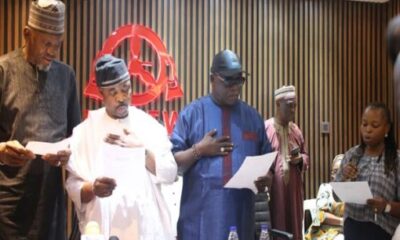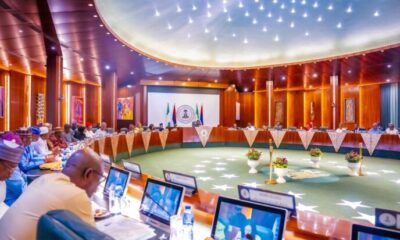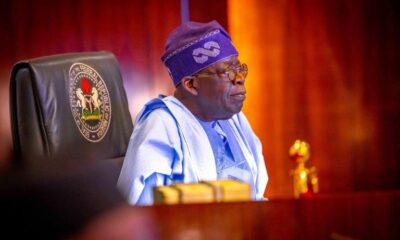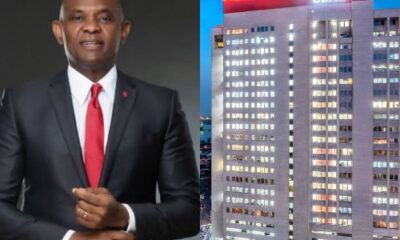The federal executive council (FEC) has approved a $2.2 billion external borrowing plan to strengthen the country’s finances and support economic reforms.
Wale Edun, the minister of finance and coordinating minister of the economy, spoke to journalists at the end of the FEC meeting on Thursday, presided over by President Bola Tinubu.
The minister said the financing package will be raised through a combination of eurobonds and sukuk.
He said approximately $1.7 billion is expected from the eurobond offer and $500 million from the sukuk financing.
The minister disclosed that the borrowing would happen this fiscal year, stressing that the ultimate funding arrangement would be decided by market conditions and the transaction adviser’s counsel.
“The first objective is to complete the federal government’s external borrowing programme with the approval of the $2.2 billion financing package, which will include access to the international capital market through a combination of Eurobonds and Sukuk bonds —approximately $1.7 billion from the Eurobond offer and $500 million from Sukuk financing,” Edun said.
“The actual composition of the financing will be finalised once the national assembly has considered and approved the borrowing plan.
“After the external borrowing approval is granted, the funds will be raised as soon as possible within the year.
“The exact combination of instruments will depend on the advice of transaction advisers and market conditions when we decide to enter the market.
“Earlier in the year, we demonstrated the resilience of the Nigerian financial markets and their capacity to handle more complex and sophisticated offerings, such as the domestic issuance of dollar bonds that attracted investors from both Nigeria and abroad.”
Edun said the success of the domestic dollar bond demonstrates the Nigerian financial market’s tenacity.
He said the most recent overseas borrowing was “made possible by the government’s economic agenda, which includes market-based pricing for important economic variables like foreign exchange and petroleum goods.”
The minister said the council also approved the establishment of a N250 billion real estate investment fund with the goal of addressing Nigeria’s housing deficit.
“Approval has been granted for the Ministry of Finance Incorporated (MOFI) real estate investment fund,” he said.
“This fund will serve as the basis for the revival of long-term mortgage financing in the Nigerian economy.
“The MOFI real estate investment fund will initially amount to N250 billion and will provide low-cost, long-term mortgages to Nigerians who wish to acquire homes. It will help address part of the 22 million-unit housing deficit.
“Of course, it will create jobs, stimulate economic growth, and pave the way for other private sector investors to participate in the housing construction industry, with significant benefits for the broader economy.
“The concept is long-term. Investors will have the opportunity to earn market rates of interest and returns on investment, blended with seed funding of N150 billion.”
Edun said the initiative will provide Nigerians with the opportunity to secure mortgages at interest rates significantly lower than the current market rates, which can exceed 30 percent, with tenures that could extend up to 20 years or more.

 BIG STORY22 hours ago
BIG STORY22 hours ago
 BIG STORY1 day ago
BIG STORY1 day ago
 BIG STORY17 hours ago
BIG STORY17 hours ago
 BIG STORY1 day ago
BIG STORY1 day ago
 BIG STORY4 days ago
BIG STORY4 days ago
 BIG STORY3 days ago
BIG STORY3 days ago
 BIG STORY3 days ago
BIG STORY3 days ago
 BIG STORY4 days ago
BIG STORY4 days ago






















